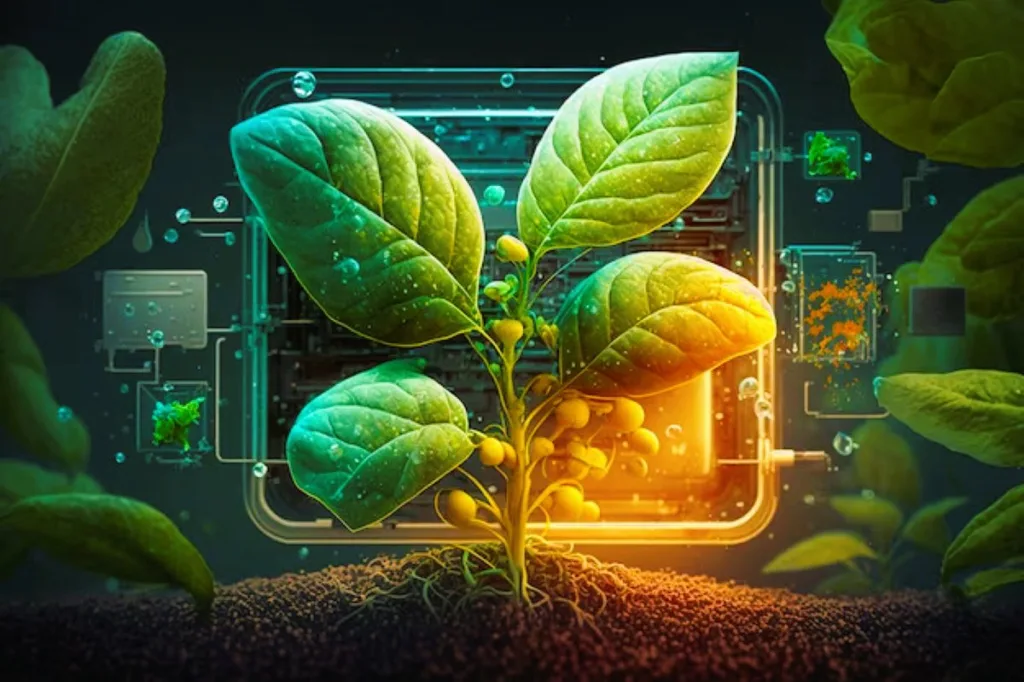The agriculture industry is on the cusp of transformation with the emergence of Generative AI. The application of generative AI in agriculture holds immense potential to enhance productivity, optimize resource utilization, and revolutionize traditional practices.
By leveraging sophisticated algorithms and analyzing vast amounts of data, generative AI offers valuable insights that can drive sustainable agricultural practices. This article explores four key applications of generative AI in agriculture and highlights their advantages and potential impact on the industry.
Resource Optimization and Precision Agriculture
Precision agriculture relies heavily on data-driven decision-making to maximize resource utilization. Generative AI plays a pivotal role in this aspect by generating precise instructions for irrigation, fertilizer application, and pesticide usage.
By integrating data from diverse sources such as soil sensors, weather forecasts, and historical yield data, AI algorithms ensure efficient resource management while minimizing environmental impact. Additionally, this approach lowers production costs, enabling farmers to achieve higher productivity with minimal effort.
Early Detection & Prevention of Crop Diseases
The early detection and prevention of crop diseases are crucial for ensuring food security and sustainability. Generative AI technology can analyze visual and sensor data obtained from drones or satellites to identify signs of crop diseases and nutrient deficiencies.
By training on extensive datasets, AI algorithms can recognize patterns and provide real-time information to farmers. This proactive approach enables prompt interventions, targeted treatments, and containment of disease spread, ultimately reducing crop losses and increasing overall yields.

Crop Yield Improvement
Generative AI empowers farmers to achieve maximum agricultural yield by harnessing data on soil characteristics, weather patterns, and plant traits. By employing machine learning algorithms, AI can identify optimal planting techniques and forecast crop development trends.
As a result, farmers receive personalized recommendations for targeted improvements, leading to increased productivity and reduced resource wastage. This approach aligns agriculture with sustainability goals while meeting the rising global demand for food.
Breeding Crops and Genetic Advancement
The traditional crop breeding process can be time-consuming and labor-intensive. Generative AI has the potential to revolutionize this aspect by accelerating genetic advancement. AI algorithms can simulate virtual breeding trials by analyzing extensive databases of plant genetics and characteristics.
By predicting the outcomes of various breeding strategies, AI assists breeders in rapidly identifying successful pairings. This acceleration of genetic advancement expedites the development of new and improved crop varieties that are resilient, high-yielding, and adaptable to changing environmental conditions.
Conclusion
The integration of generative AI in agriculture represents a groundbreaking shift that promises to optimize farming practices and improve overall productivity. By enabling early disease detection, resource optimization, yield improvement, and genetic advancement, generative AI empowers farmers to make informed decisions that drive sustainability and growth in the agriculture sector.
As this technology continues to evolve, it is essential to ensure responsible and ethical implementation, considering factors such as data privacy, equitable access, and environmental conservation. Embracing generative AI in agriculture can usher in a new era of efficiency, productivity, and environmental stewardship.

